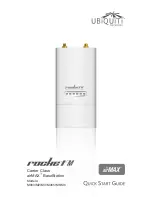
Signal Description
72
Datasheet
SA_CKE[1:0]
Clock Enable:
(1 per rank) Used to:
- Initialize the SDRAMs during power-up
- Power-down SDRAM ranks
- Place all SDRAM ranks into and out of self-
refresh during STR
O
DDR3
SA_CS#[1:0]
Chip Select:
(1 per rank) Used to select
particular SDRAM components during the
active state. There is one Chip Select for
each SDRAM rank.
O
DDR3
SA_ODT[1:0]
On Die Termination:
Active Termination
Control.
O
DDR3
Table 6-22.Memory Channel B (Sheet 1 of 2)
Signal Name
Description
Direction/
Buffer Type
SB_BS[2:0]
Bank Select:
These signals define which
banks are selected within each SDRAM rank.
O
DDR3
SB_WE#
Write Enable Control Signal:
Used with
SB_RAS# and SB_CAS# (along with
SB_CS#) to define the SDRAM Commands.
O
DDR3
SB_RAS#
RAS Control Signal:
Used with SB_CAS#
and SB_WE# (along with SB_CS#) to define
the SRAM Commands.
O
DDR3
SB_CAS#
CAS Control Signal:
Used with SB_RAS#
and SB_WE# (along with SB_CS#) to define
the SRAM Commands.
O
DDR3
SB_DM[7:0]
Data Mask:
These signals are used to mask
individual bytes of data in the case of a
partial write and to interrupt burst writes.
When activated during writes, the
corresponding data groups in the SDRAM are
masked. There is one SB_DM[7:0] for every
data byte lane.
O
DDR3
SB_DQS[7:0]
Data Strobes:
SB_DQS[7:0] and its
complement signal group make up a
differential strobe pair. The data is captured
at the crossing point of SB_DQS[7:0] and its
SB_DQS#[7:0] during read and write
transactions.
I/O
DDR3
SB_DQS#[7:0]
Data Strobe Complements:
These are the
complementary strobe signals.
I/O
DDR3
SB_DQ[63:0]
Data Bus:
Channel B data signal interface to
the SDRAM data bus.
I/O
DDR3
Table 6-21.Memory Channel A (Sheet 2 of 2)
Signal Name
Description
Direction/Buffer
Type















































